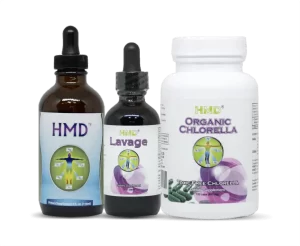
The Science of Heavy Metal Detox
The Science of Heavy Metal Detox Natural Approaches to Cleansing Your Body In our modern world, exposure to heavy metals chlorella detox is practically unavoidable. Whether it’s through the food
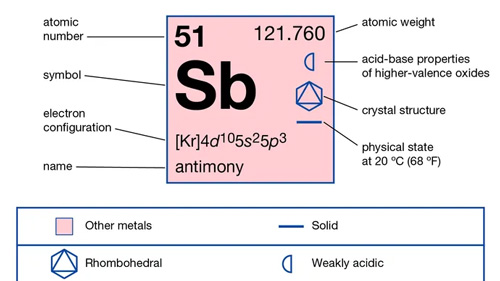
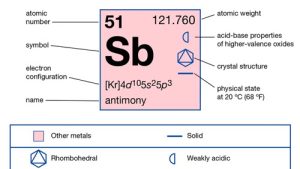 Antimony is a lesser-known heavy metal that can pose health risks when exposure occurs at elevated levels. This article aims to shed light on antimony, its potential dangers, and how to protect yourself. We’ll explore the definition of antimony, what antimony poisoning entails, where antimony can be found, the symptoms of antimony poisoning, and the potential long-term health effects. Empower yourself with the knowledge to recognize the signs of antimony poisoning and take action to stay safe.
Antimony is a lesser-known heavy metal that can pose health risks when exposure occurs at elevated levels. This article aims to shed light on antimony, its potential dangers, and how to protect yourself. We’ll explore the definition of antimony, what antimony poisoning entails, where antimony can be found, the symptoms of antimony poisoning, and the potential long-term health effects. Empower yourself with the knowledge to recognize the signs of antimony poisoning and take action to stay safe.
Antimony is a naturally occurring element widely distributed in the Earth’s crust. It is classified as a heavy metal in various forms, including compounds and alloys. Antimony has been used for centuries in various applications, such as in producing alloys, flame retardants, and certain medications.
Antimony poisoning occurs when an individual is exposed to high levels of antimony, either through ingestion, inhalation, or dermal contact. While antimony is not as well-known as other heavy metals like lead or mercury, it can still be toxic when encountered in excessive amounts.
Antimony toxicity can occur when individuals are exposed to elevated levels of antimony, either acutely or chroella detox . The main sources of antimony toxicity are typically associated with exposure to antimony-containing compounds and products. Here are some of the main sources of antimony toxicity:
Workers in industries where antimony is mined, processed, or used in manufacturing are at risk of occupational exposure to antimony. These industries include mining, metallurgy, and the production of antimony-containing products.
Antimony compounds are used as flame retardants in various consumer products, including textiles (e.g., clothing, curtains), plastics (e.g., electronics casings, toys), and upholstered furniture. Prolonged contact with or ingestion of products containing antimony can lead to exposure.
In areas where antimony occurs naturally in groundwater or is released from industrial processes, drinking water can become contaminated with antimony. Individuals who consume contaminated water may be at risk of exposure.
Food and beverages stored or prepared in containers made from antimony-containing materials may contain trace amounts of antimony. This can contribute to dietary exposure.
In the past, some medications contained antimony compounds. While such medications are less common today, they may still pose a risk if used improperly or without medical supervision.
Inhalation of airborne particles containing antimony, particularly in industrial settings, can lead to respiratory exposure to antimony compounds.
Soil and dust in areas with historical or ongoing antimony mining or processing activities can contain elevated levels of antimony. Individuals living in such areas may be at risk of exposure through inhalation and ingestion.
Waste materials, particularly electronic waste (e-waste) containing antimony-containing products, can risk exposure to individuals involved in recycling or living near waste disposal sites.
Certain art and craft supplies, such as pottery glazes and pigments, may contain antimony. Artists and craftsmen who work with these materials should take precautions to minimize exposure.
Antimony compounds have been used in some traditional or folk medicine practices. Using such remedies without proper medical guidance can result in antimony exposure.
Antimony toxicity can lead to a range of symptoms, varying in severity depending on the level and duration of exposure. The symptoms of antimony toxicity often affect multiple organ systems in the body. Here are the main symptoms associated with antimony toxicity:
Antimony toxicity detox pack can cause gastrointestinal symptoms, including nausea, vomiting, abdominal pain, and diarrhea. These symptoms may occur shortly after exposure.
Inhalation of airborne antimony particles or compounds can lead to respiratory issues, such as coughing, shortness of breath, chest pain, and irritation of the respiratory tract.
Elevated levels of antimony may affect heart rate and blood pressure, leading to irregular heartbeats or changes in blood pressure.
Dermal contact with antimony compounds can result in skin irritation, rashes, redness, or blisters. Skin may become itchy or develop a burning sensation.
In severe cases of antimony toxicity, individuals may experience neurological symptoms, including headache, dizziness, confusion, and irritability.
Prolonged exposure to high levels of antimony can lead to hemolytic anemia. In this condition, red blood cells are prematurely destroyed, resulting in pallor, weakness, and jaundice (yellowing of the skin and eyes).
Elevated antimony levels can affect kidney and liver function. This can result in abnormalities in tests measuring the function of these organs.
Some individuals may experience muscle and joint pain due to antimony exposure.
Antimony toxicity may lead to changes in urination patterns, including increased frequency or changes in urine color.
Severe antimony poisoning can affect the central nervous system, leading to symptoms such as seizures, hallucinations, and coma, although severe cases are relatively rare.
The long-term health effects heavy metal detox of antimony toxicity can be significant. They may depend on several factors, including the duration and level of exposure, the specific antimony compounds involved, and individual susceptibility. Here are some potential long-term health effects associated with chronic antimony toxicity:
Chronic inhalation of antimony-containing particles or compounds can lead to persistent respiratory problems. Individuals may experience chronic cough, wheezing, and other respiratory symptoms. In severe cases, chronic exposure may contribute to developing conditions such as chronic bronchitis or chronic obstructive pulmonary disease (COPD).
Prolonged exposure to antimony can result in lung damage, including fibrosis (scarring of lung tissue). This can impair lung function and lead to reduced lung capacity.
Antimony toxicity may affect the cardiovascular system, leading to heart rate and blood pressure changes. Over time, this can contribute to heart-related problems like arrhythmias or hypertension.
Some studies suggest that chronic exposure to antimony may be associated with neurological effects, including cognitive impairment, memory problems, and changes in behavior. However, more research is needed to establish a clear link between antimony exposure and specific neurological conditions.
Individuals with chronic antimony exposure may continue to experience gastrointestinal symptoms, such as recurrent nausea, vomiting, abdominal pain, and diarrhea.
Elevated antimony levels can adversely affect the kidneys and liver over time. Chronic exposure may contribute to kidney dysfunction, liver damage, and the development of kidney or liver diseases.
Chronic antimony exposure may lead to persistent muscle and joint pain. This can impact mobility and overall quality of life.
Skin irritation and dermatological problems may persist in individuals with a history of antimony exposure. Skin issues can include chronic rashes, itching, or sensitivity.
There is ongoing research into the potential carcinogenic properties of certain antimony compounds, particularly antimony trioxide. While evidence is inconclusive, long-term exposure to these compounds has raised concerns regarding cancer risk, particularly lung cancer.
Chronic antimony toxicity can affect multiple organ systems in the body, leading to various chronic health problems. These systemic effects may include fatigue, weakness, and an overall decline in health.
Recognizing the symptoms of antimony poisoning is the first step to protecting yourself. If you suspect antimony exposure or experience symptoms consistent with antimony poisoning, seek medical attention promptly. A healthcare provider can conduct tests to assess antimony levels in the body and provide appropriate treatment.
Preventing antimony poisoning involves reducing exposure to potential sources of antimony. Here are some measures you can take to protect yourself:
If you work in an industry with potential antimony exposure, follow workplace safety guidelines and use appropriate protective equipment.
If you live in an area with known antimony contamination in groundwater, consider using alternative drinking water sources, such as bottled or treated water.
Be cautious with products containing antimony compounds, especially in textiles and plastics.
Ensure that any medications you take do not contain antimony compounds unless prescribed by a healthcare provider.
If you suspect exposure to antimony or have concerns, consult a healthcare provider for evaluation and guidance.
Stay informed about local environmental conditions and potential sources of antimony exposure in your area.
If you work with materials that may contain antimony, follow safe handling procedures and use personal protective equipment as recommended.
The options are somewhat limited when seeking a natural method to chelate antimony, a heavy metal detox process supported by scientific research. Nevertheless, there is one natural supplement that has undergone rigorous scientific scrutiny and has shown promise in effectively chelating antimony – it’s known as HMD. Please delve into the available studies for more details on the scientific research supporting this natural heavy metal chelator
Antimony poisoning, though less recognized than other heavy metal poisonings, is a serious health concern when exposure occurs at elevated levels. Understanding antimony exposure’s sources, symptoms, and potential long-term effects is crucial for safeguarding your health. By recognizing the signs of antimony poisoning and taking preventive measures, you can reduce the risks associated with this heavy metal and maintain a healthier, safer lifestyle.
Read more : Full body detox kit

Alkaline Detox Diet best body detox best detox kit best detox supplements best full body detox best heavy metal detox best heavy metal detox for adults best herbal detox best metal detox best thc detox kit body cleanse supplements body detoxification supplements Causes Arsenic Poisoning children and heavy metals chlorella detox Copper Toxicity in Drinking Water detox kit detox pack detox supplements detox tablets Does Sweating Really Release early symptoms of heavy metal toxicity full body detox kit hair mineral analysis heavy metal detox heavy metal detox kit heavy metals detox heavy metals in food Heavy Metals in Makeup Heavy Metals in US Foods HMD Heavy Metal Detox HMD Ultimate Detox Pack Natural Heavy Metal Detox natural supplement for aluminum ORGANIC CHLORELLA pure body detox pure body extra detox Sexual desire in women Sources of Copper Exposure Thallium Poisoning toxic metal detox Toxic metals and sex Toxic metals and women's sexual desire toxic metals in food ultimate detox

The Science of Heavy Metal Detox Natural Approaches to Cleansing Your Body In our modern world, exposure to heavy metals chlorella detox is practically unavoidable. Whether it’s through the food
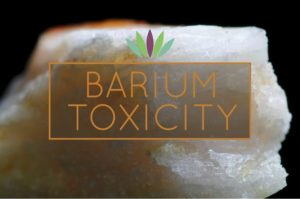
Barium Toxicity: Sources, Health Effects, and Natural Detoxification Methods Barium is a naturally occurring heavy metal found in various minerals, water sources, and industrial materials. Although barium has certain industrial
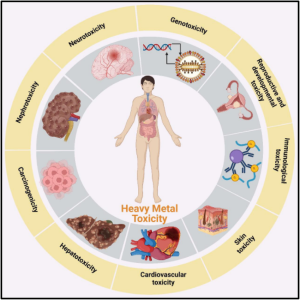
How Heavy Metals Are Stored in the Body Their Impact on Health Heavy metals chlorella detox such as lead, mercury, cadmium, arsenic, and aluminum are naturally occurring elements that can
Detoxmetals.com specializes in natural heavy metal detox supplements for eliminating heavy metals naturally from the body.
GMG DA VINCI HEALTH LTD Panayia Aimatousa 300 Aradippou 7101, Larnaca Cyprus
[sibwp_form id=1]
If you’re not receiving an email in your inbox, please check your spam folder. Sometimes legitimate emails can be mistakenly marked as spam. If you find the email there, you can mark it as “Not Spam” to ensure future messages from that sender go to your inbox
